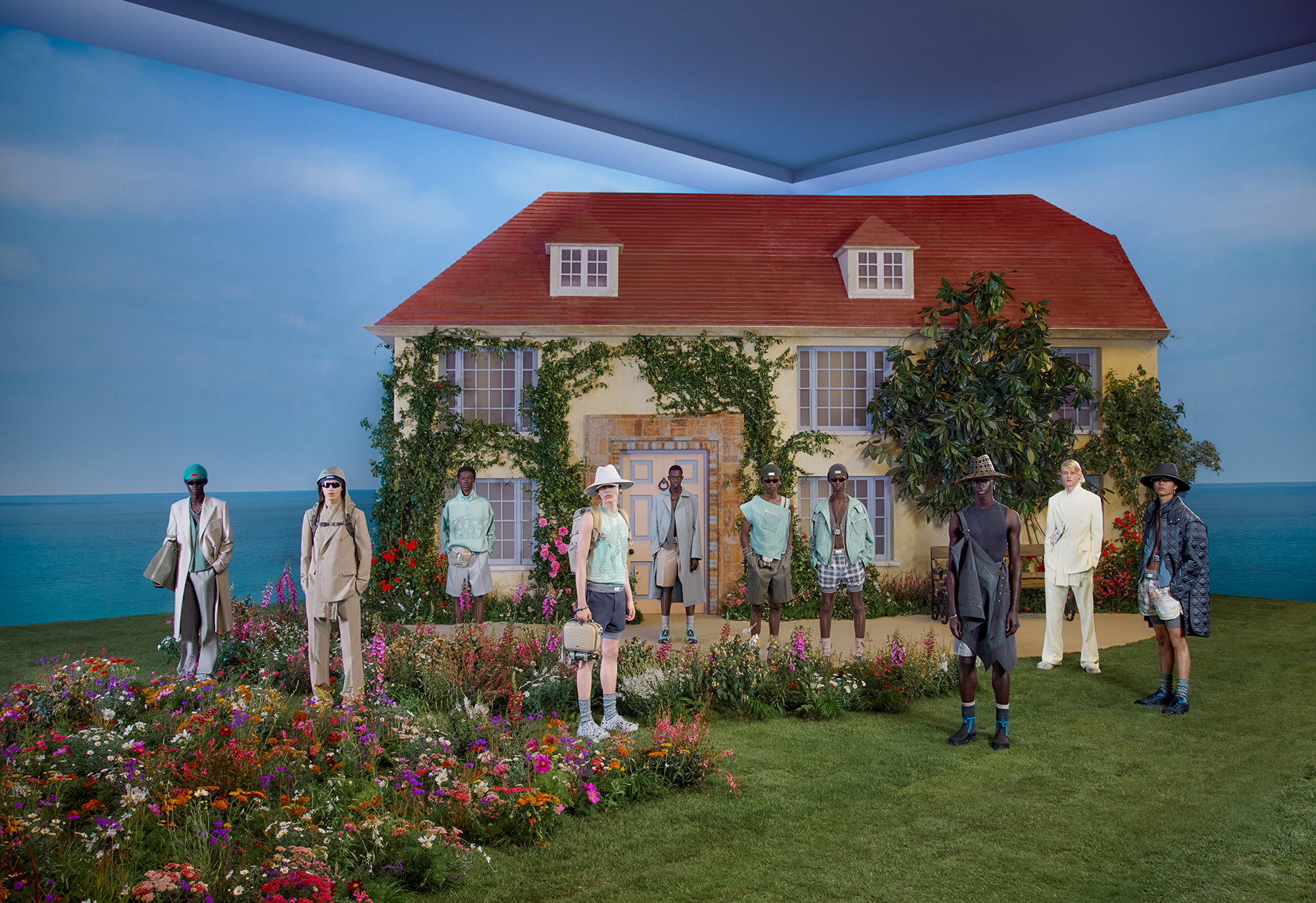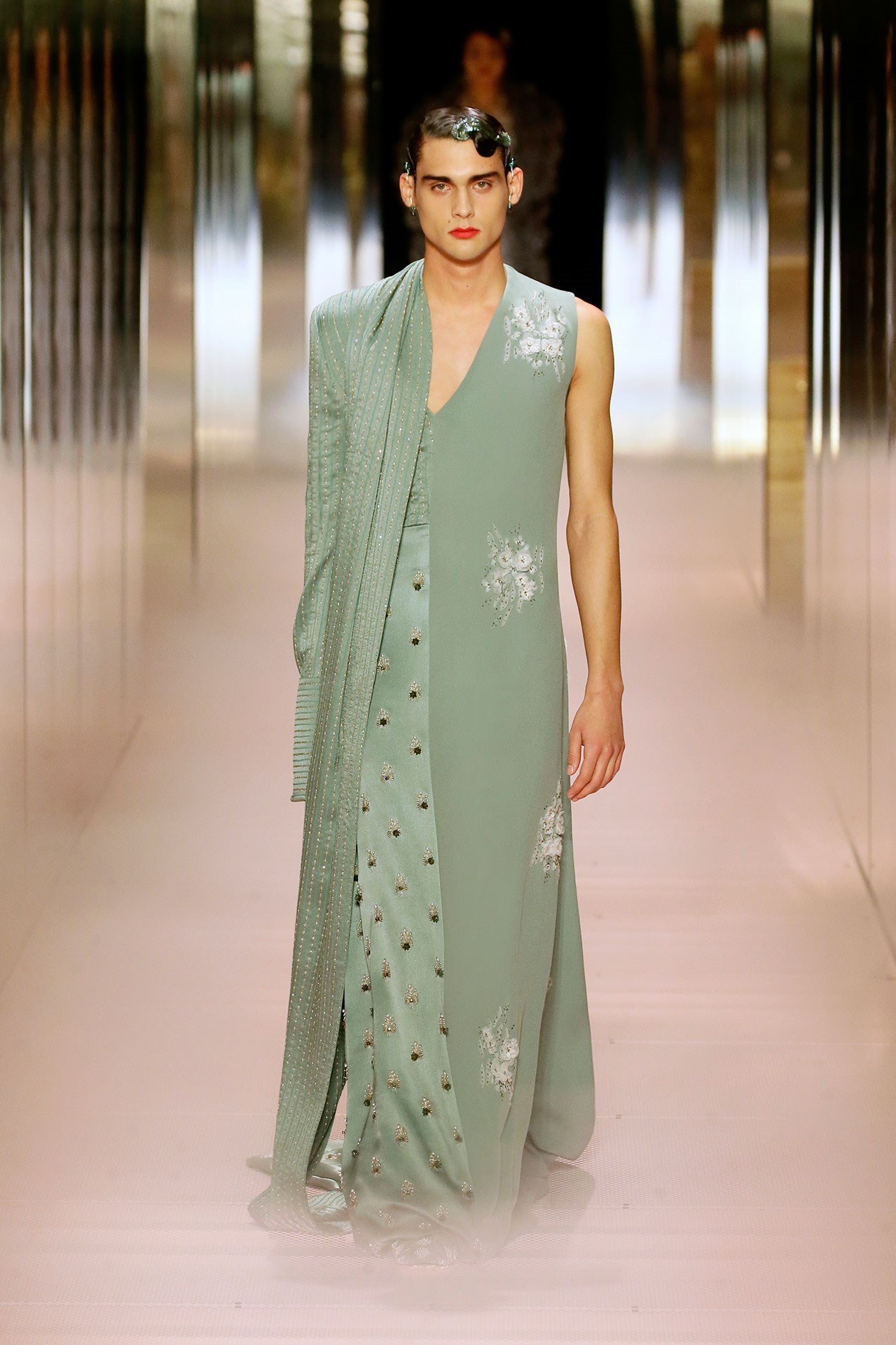
Emerging in the early 20th century and comprising writers, artists and intellectuals, the Bloomsbury Group – named after the London neighbourhood in which they would gather – is best known for the liberated, rebellious lifestyles of its distinct personalities (among them Virginia Woolf, Vanessa Bell and Duncan Grant) and its vast cultural legacy, which ushered in a new era of modernism.
A new exhibition, ‘Bring No Clothes: Bloomsbury and Fashion’ – set to open this September in Lewes on Britain’s south coast – provides a fresh perspective on the group, honing in on the group's use of clothing and exploring its influence on a slew of contemporary fashion designers and houses. Curated by writer Charlie Porter, supported by Dior and organised by Charleston – the modernist home and studio of Bell and Grant, which is also located in East Sussex – its name is taken from a letter Woolf sent to T.S. Eliot in 1920, inviting him to stay. ‘Please bring no clothes: we live in a state of utmost simplicity,’ she wrote.
Held in Charleston’s new gallery space in Lewes, the exhibition will focus on six ‘protagonists’, among them Woolf, Bell and Grant, alongside author E.M. Forster, economist John Maynard Keynes and aristocrat and artistic patron Lady Ottoline Morrell. Objects will span original garments, historical ephemera, paintings, photography and writings, each capturing the Bloomsbury Group’s ‘liberated sexuality, feminism, queerness and pacifism, [which helped] to set the foundations for how we dress today’.
New Charleston exhibition explores the Bloomsbury Group through fashion

Alongside, a series of contemporary garments will also feature; namely, those by Kim Jones during his tenures at Fendi and Dior. It has been a prescient influence to Jones, who is an avid personal collector of original Bloomsbury Group objects. His first Fendi couture show looked to Bell and Woolf for inspiration, while his S/S 2023 menswear show for Dior was backdropped by a recreation of Charleston and featured motifs from Grant’s work. Other pieces include designs by Erdem, Christopher Bailey for Burberry, and Rei Kawakubo for Comme des Garçons.
’The Bloomsbury Group engaged with fashion in dynamic ways, from philosophical thinking to radical dressing,’ says Porter, whose coinciding book Bring No Clothes: Bloomsbury and the Philosophy of Fashion will be published by Particular Books in September 2023. ‘[This exhibition] uses garments to shed new light on their lives, as well as bring insight into how we dress today. By mixing together the past with the present, I hope the show will encourage visitors to reconsider their future relationship with fashion.’
Another exhibition held by Charleston in the new Lewes space will run alongside ‘Bring No Clothes’, focussing on the works of Jonathan Baldock. The immersive exhibition will be the first UK survey show of the contemporary British artist and coincides with his show at Yorkshire Sculpture Park. ‘Growing up between Kent and East Sussex, I’ve always felt as if Charleston and the Bloomsbury group are part of my DNA,’ he says. ‘I’ve visited Lewes and Charleston so many times, as a child and through to adulthood, and could even see Sissinghurst Castle, the home of Vita Sackville-West, from my bedroom window. So, the opportunity to show my work in connection with a place that has influenced me feels incredibly magical.’
‘It is exciting to launch Charleston’s new building in central Lewes with two very different exhibitions,’ adds Nathaniel Hepburn, director at Charleston. ‘In “Bring No Clothes: Bloomsbury and Fashion“, Charlie Porter takes a fresh angle that is bringing us new stories on the extraordinary lives of the Bloomsbury group members, showing again the continued relevance of their ideas to contemporary culture. Jonathan Baldock’s bold installation brings his colourful, sensory world to our spaces, and is indicative of the scale of contemporary exhibition the new building will enable for Charleston.’
‘Bring No Clothes: Bloomsbury and Fashion’ and ‘Jonathan Baldock: through the joy of the senses’ will run from 13 September 2023 – 7 January 2024 at Charleston in Lewes.







